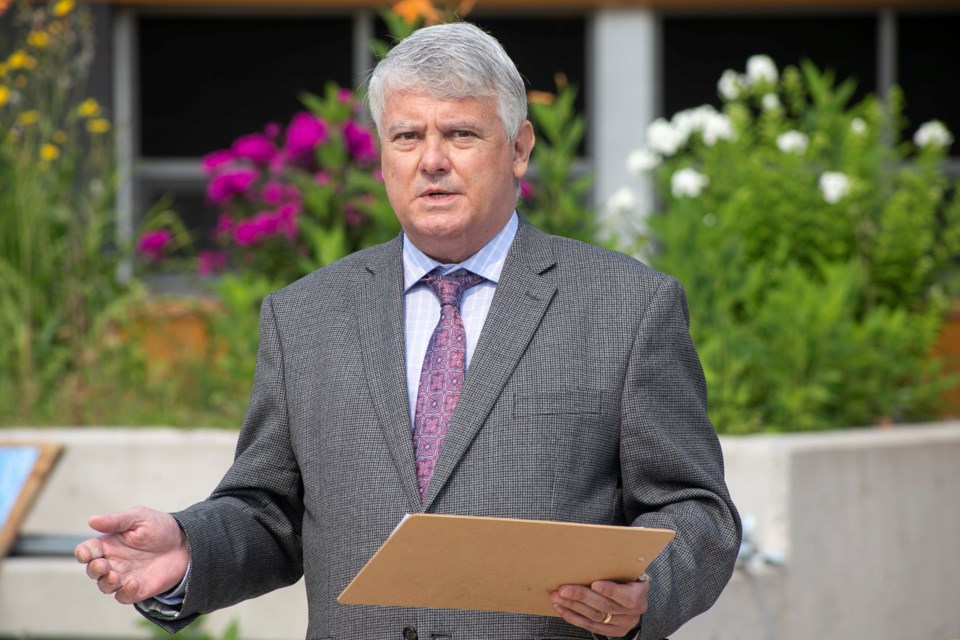In the 24 hours from Tuesday to Wednesday evening, Sault MP Terry Sheehan's cliffhanger re-election bid has advanced by 19 votes.
Elections Canada now says Sheehan has 14,467 votes, compared to 14,448 on Tuesday.
All the new votes come from a still-incomplete counting of ballots from the 184th and final polling station, consisting entirely of mail-in ballots.
Conservative rival Sonny Spina picked up 13 new votes over the same period.
Spina currently has 14,406 votes.
The 55-vote lead Sheehan had over Spina last night has now increased to 61.
New Democrat Marie Morin-Strom now has 7,773 votes in the latest returns.
People's Party candidate Kasper Makowski is fourth with 1,891.
Elections Canada data show that 1,983 ballots were returned from 2,342 local voting kits issued.
Eligible voters, whether living inside or outside Canada, may apply for a special ballot voting kit including:
- a special ballot
- a blank white envelope
- an envelope with their name, riding and a space where they can sign
- a pre-addressed return envelope with prepaid postage
- voting instructions
Voters may only vote once in an election, and may vote only for a candidate running in their riding.
The completed special ballot must be placed in the inner envelope, which is then placed in the signed outer envelope to be submitted to Elections Canada.
"They started verifying them yesterday afternoon," says Elections Canada regional media advisor Rejean Grenier.
"Verification for 500 mail-in ballots takes between three to four hours," Grenier told SooToday.
"Counting for 500 ballots takes another three to four hours."
Local ballot counting is expected to conclude sometime on Thursday.
A judicial recount is automatic if the leading candidates in an electoral district get the same number of votes, or if the difference in votes is less than one one-thousandth of the total votes cast.
An Elections Canada returning officer must ask a judge for a judicial recount and must also advise the candidates or their official agents .
Any voter or candidate may also ask a judge to perform a judicial recount, but notice in writing must be first provided to the returning officer before a request may be made to a judge.
The request must be accompanied by an affidavit indicating that the count was:
- improperly carried out
- ballots were improperly rejected
- the statement of the vote contains an incorrect number of votes cast for a candidate
- the returning officer incorrectly added up the results
Anyone applying for a judicial recount must deposit $250 with the court as security for the costs of the candidate who obtained the most votes.
Results of judicial recounts are final.
Judicial recounts deal only with tabulation and counting of votes, while allegations of fraud or electoral irregularities in the electoral process are dealt with through contested election applications.
In a contested election proceeding, a judge explores whether the election winner was eligible to run and whether the outcome of the election was affected by irregularities, fraud, or corrupt or illegal practices.
Decisions made at a contested election proceeding may be taken to the Supreme Court of Canada.



